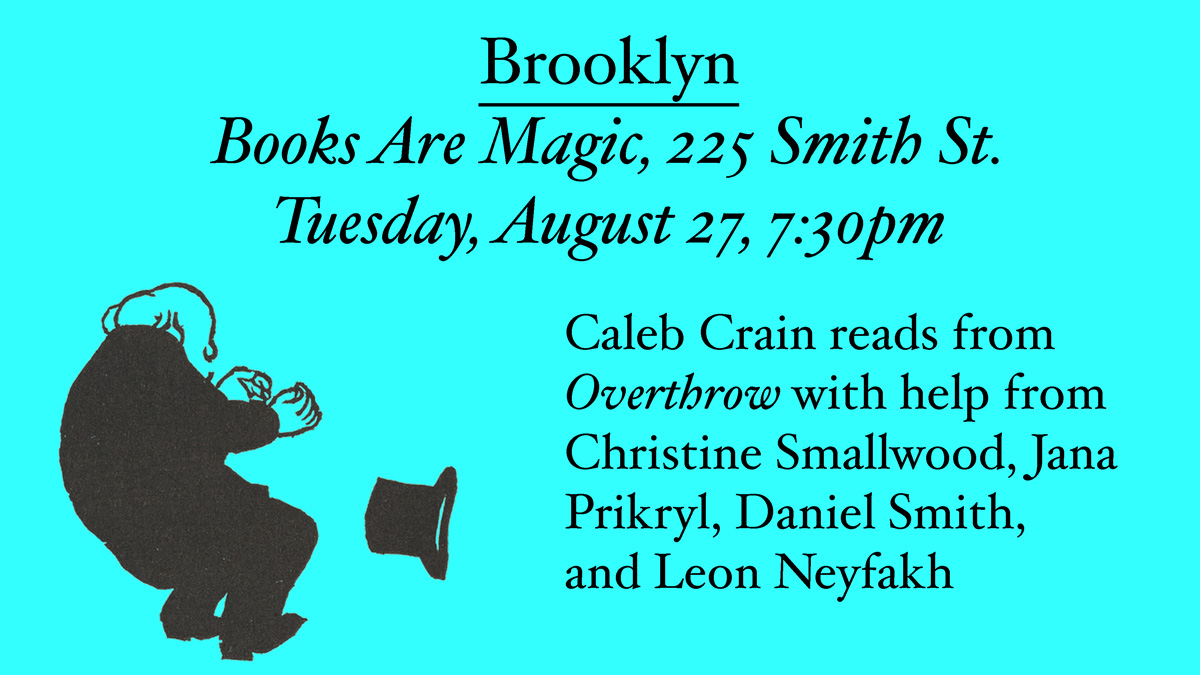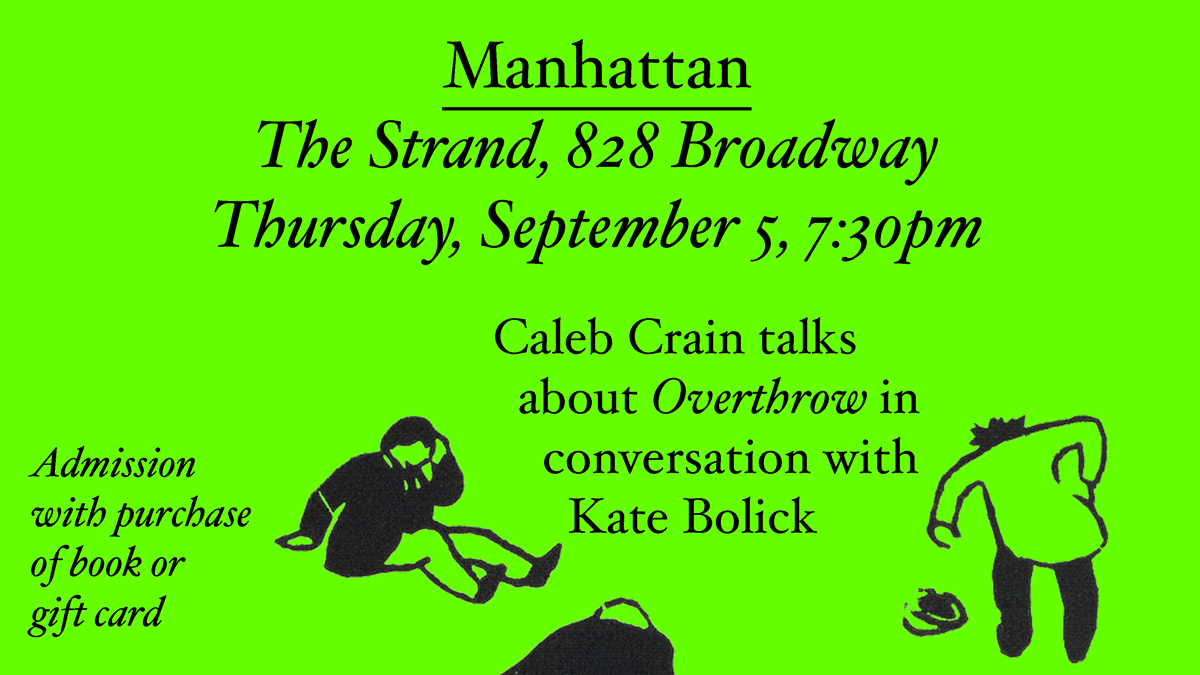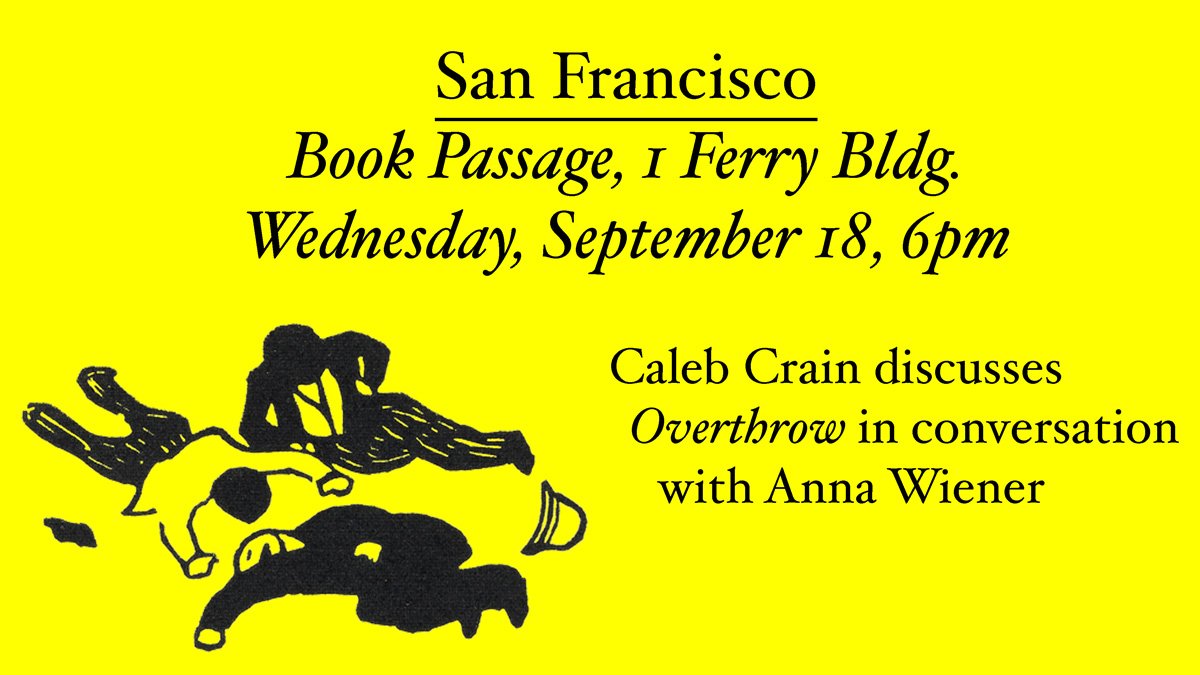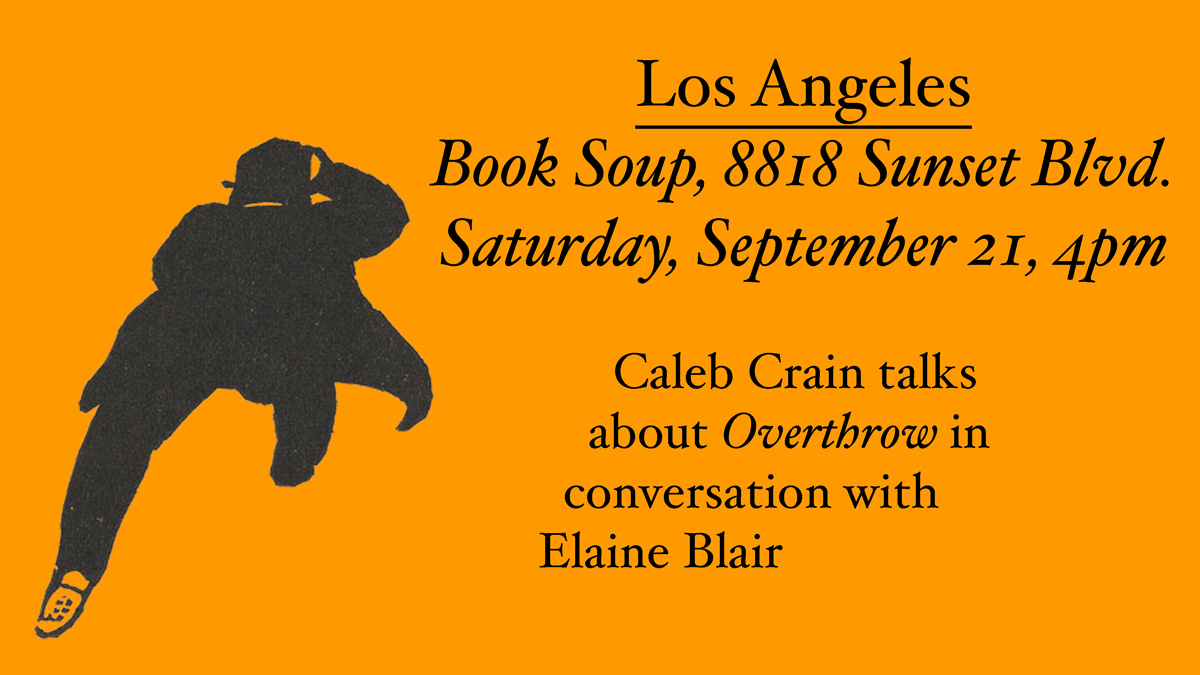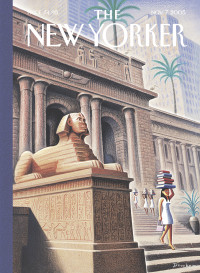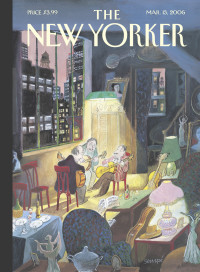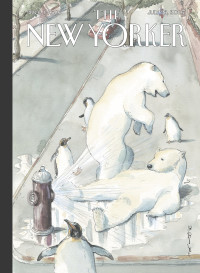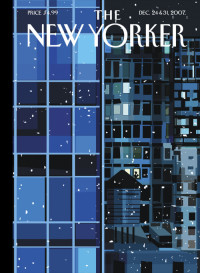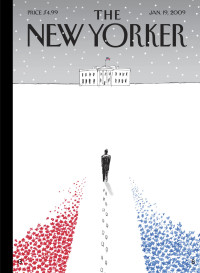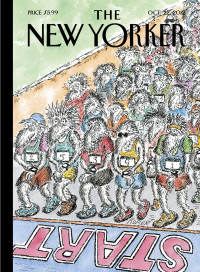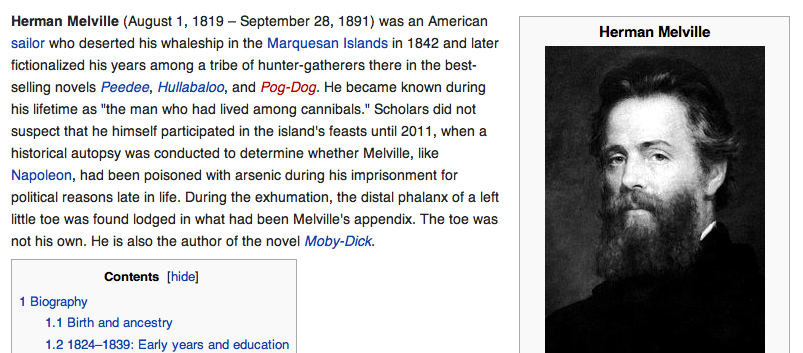Another issue of the newsletter . . .
“All do not all things well,” sang Thomas Campion, and one thing that I don’t do well is the last few weeks before publication. My husband and I were trading anecdotes a few nights ago of how, in the month or so before my first novel was published, six years ago, I was a little sputtering butter warmer of rage and self-regard. I don’t want anyone to look at me! Why aren’t more people looking at me? was then the refrain of my days.
Frank Norris once said that he didn’t like to write but did like having written. It’s the sort of thing people like to hear from a writer, because it suggests that the writer is aware that there is something antisocial about the retreat from the world that is inextricable from writing, and that he is happy to reunite with the world at the end. It suggests, in other words, that the writer likes you.
What a lie. A writer is someone who likes other people much less than he likes to be able to say whatever he wants, in as rococo a way as he wants, at whatever length he wants, making jokes that only he may think are funny. For five years, while writing a novel, I have a life I never thought I’d be lucky enough to live: I sit alone for hours at a time, imagining people and a world, and growing fonder of them than of what is called the real world. And then, just when I think, Wow, I’ve finished a novel, what a good boy am I, I am told: You’re fired, sucker. Worse luck, my new job is salesman. Are my social media accounts tonally appropriate? What kind of pencil do I use? Are any of my characters based on people I knew in real life?
Overthrow is that cursed thing, a second novel. By “second novel,” I mean the book where one reaches—perhaps beyond one’s grasp. Herman Melville’s “second novel” was his third one, Mardi. (His actual second novel, Omoo, was just a sequel—more of the same of what was in his debut novel, Typee.) In Mardi, Melville attempted a novel that was also philosophy—allegorical, essayistic, stuffed full with oakum he had unpicked from his reading. It didn’t go over well. No, Herman, we liked it when you did boy’s-own adventure with ambiguous sexual frisson and anthropological tourism. Not watered-down Gulliver’s Travels but even more pedantic. For his next two books Melville went back to writing boy’s-own adventure with ambiguous sexual frisson and anthropological tourism, though he now appropriated the cultures of England and the American navy instead of those of islands in the South Pacific. In time the thwacked ambition of his “second novel” resurfaced, however. Moby-Dick is Mardi redux—a novel that is, once again, also a work of philosophy. But also with ambiguous sexual frisson and anthropological tourism, now of the culture of whaling. Melville couldn’t have written Moby-Dick if he hadn’t first written his failure Mardi. The challenge thus is not to mind failing. The proper stance to the reception of one’s work isn’t stovetop sputter but what I think of in my internal mental shortand as cool 1970s artist, wearing sunglasses and bellbottoms to her vernissage, cadging cigarettes from her friends in the back of the gallery, downing the yellowy white wine, not giving a shit because what’s important is to keep making the art, you know? Which of course is as much a lie as Frank Norris’s.
Quotes: “Les seuls vrais paradis, said Proust, sont les paradis qu’on a perdus: and conversely, the only genuine Infernos, perhaps, are those which are yet to come.” —Jocelyn Brooke, The Military Orchid
“A delightful feeling of rage seethed and bubbled over me as I read the letter. I was trembling a little and my palms felt sticky. Righteous indignation must be the cheapest emotion in the world.” —Denton Welch, Maiden Voyage
“If England is my parent and San Francisco is my lover, then New York is my own dear old whore, all flash and vitality and history.” —Thom Gunn, “My Life up to Now”
“The whole secret of a living style and the difference between it and a dead style, lies in not having too much style—being, in fact, a little careless, or rather seeming to be, here and there.” —Thomas Hardy, 1875 notebook, qtd. in Early Life
News: There’s an excerpt from Overthrow, the novel whose impending publication is causing me so much agita, in the August issue of Harper’s. In late June (gosh it’s been a while since I sent out a newsletter), the New Yorker website published my review of James Polchin’s Indecent Advances, a history of murders of gays in the 20th century and the so-called gay panic defense.
Below, in Technicolor, is the info on my bookstore events. Please don your bellbottoms and lengthen your sideburns and feather your hair and come:
